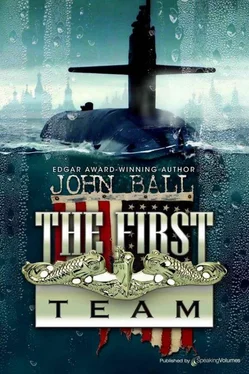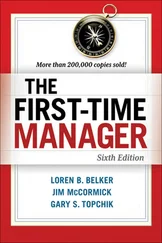Джон Болл - The First Team
Здесь есть возможность читать онлайн «Джон Болл - The First Team» весь текст электронной книги совершенно бесплатно (целиком полную версию без сокращений). В некоторых случаях можно слушать аудио, скачать через торрент в формате fb2 и присутствует краткое содержание. Год выпуска: 2013, Жанр: Триллер, на английском языке. Описание произведения, (предисловие) а так же отзывы посетителей доступны на портале библиотеки ЛибКат.
- Название:The First Team
- Автор:
- Жанр:
- Год:2013
- ISBN:нет данных
- Рейтинг книги:5 / 5. Голосов: 1
-
Избранное:Добавить в избранное
- Отзывы:
-
Ваша оценка:
- 100
- 1
- 2
- 3
- 4
- 5
The First Team: краткое содержание, описание и аннотация
Предлагаем к чтению аннотацию, описание, краткое содержание или предисловие (зависит от того, что написал сам автор книги «The First Team»). Если вы не нашли необходимую информацию о книге — напишите в комментариях, мы постараемся отыскать её.
Student protesters are being slaughtered in the Midwest.
The Jewish pogroms have begun.
You are now living in Soviet — occupied America!
One nuclear submarine and a handful of determined patriots against the combined might of Russia and Soviet-occupied America… The Most Explosive and Gripping “What If” Novel of Our Time!
First published January 1971
The First Team — читать онлайн бесплатно полную книгу (весь текст) целиком
Ниже представлен текст книги, разбитый по страницам. Система сохранения места последней прочитанной страницы, позволяет с удобством читать онлайн бесплатно книгу «The First Team», без необходимости каждый раз заново искать на чём Вы остановились. Поставьте закладку, и сможете в любой момент перейти на страницу, на которой закончили чтение.
Интервал:
Закладка:
Then he knew that he had been picked up. It came through to him that he was being carried, then the pain became the whole universe, consuming him alive. When he was thrown down, the hard contact with the ground went unfelt, for in the last moments before the two uniformed bearers cast him aside, consciousness left him and he entered into a world of total darkness.
14
In common with a great many other American industrial installations, the Hunters Point Naval Shipyard in San Francisco Bay was having considerable difficulty in maintaining a satisfactory work force. The occupying authorities who were in direct control of the facility had issued stern edicts against either quitting or slowing down on the job, but the normal attrition which affects every large employee group kept the size of the payroll steadily shrinking while the usual inflow of new applicants dropped almost to zero. Despite the reduction in personnel, during working hours the shipyard presented its usual picture of apparent total confusion continuously sustained at a high level. In the submarine dry docks the modification work which had been under way at the time of the Defeat continued under close control by the enemy for the eventual benefit of his own fleet. And at berth eight, near to the end of the North Pier, the U.S.S. Ramon Magsaysay remained tied up under intensive twenty-four-hour guard.
The presence of the Magsaysay at Hunters Point was a departure from the normal procedure. She had been en route from Bremerton, where she had loaded her missiles, to the Pacific Missile Range for her test firing when her captain had received urgent and classified orders to proceed to Mare Island. The Magsaysay had been within three hours’ running time of the Golden Gate when the word had come through that Mare Island, the normal habitat of the nuclear submarines, was already loaded to capacity and to put in at Hunters Point instead. She had still been there, undergoing modifications to some of her conventional systems, when the President had made his announcement.
The enemy had known all about the Magsaysay and had lost no time in seizing her when they had taken over the yard. It was quickly decided that the work in progress would be continued under strict supervision, but that no chances would be taken of allowing any false heroics. She was too deadly a weapon for that. All of her stores were removed, along with as much vital equipment as could be passed up through the thirty-inch hatches that were the largest openings in her pressure hull. While this work was still in progress a former U.S. Army 105-mm mobile fieldpiece was moved to the end of the pier and installed there, where it could keep a watchful and lethal eye on the Magsaysay and all that went on around her. The powerful gun was manned twenty-four hours a day by a succession of crews that were brought in and out by special vehicles in order to prevent any contact whatever with either the military or the civilian personnel of the shipyard. A white ring fifty feet in radius was painted around the fieldpiece; posted signs warned that anyone stepping within the ring, accidentally or otherwise, would be shot immediately by a member of the gun crew on duty. Near the brow which led from the pier to the deck of the Magsaysay a radiation detector kept a continuous watch over the shutdown power plant deep within the hull. Under the water the nearly twenty-foot diameter propeller of the Mag-saysay was reportedly chained to the piling.
The growing shortage of personnel had not interfered materially with the progress of the work going on within the Magsaysay’s hull. Most of the essential modifications had been completed and the estimates posted in the commander’s office indicated that she would be ready for takeover in approximately three weeks’ time. Most of the manpower loss was reflected in the support services; the massive dumpsters were for the most part completely filled with scrap a good part of the time, supplies were late in arriving, and the general housekeeping of the big yard slipped to a level that the American commander would not have tolerated for a day. A growing number of armed enemy guards patrolled the whole area and saw to it that the level of activity at least appeared to remain at a high level.
The flow of message traffic between Hunters Point, Treasure Island, Alameda, and Mare Island was heavy and continuous, but despite the level of his responsibility, the still acting commander scanned most of it personally. He was a square-built man with some remaining grizzled hair and a perpetual expression of harassed concern. That expression did not alter to the slightest degree when, in the midst of hundreds of communications, he found an unavailability report on a piece of welding equipment. He glanced at the clock, disposed of a number of additional messages, and then turned his attention to the personnel sheets. After studying them for a short while, he sent off a signal to Mare Island urgently requesting an additional crane operator.
As a result of that near demand a new man showed up for work the following morning. The enemy had a look at him before he was allowed on base and concluded that he would fit into the pattern of what was being done at the yard. He had an exceptional physique, the obvious result of much manual labor, and spoke with a fairly heavy mid-European accent which was approved; not being a native-born citizen he would probably be less averse to working for a foreign power and doing what he was told. As soon as the man was cleared and given his work permit, he was assigned to the huge high crane which provided the heavy lift capability required on the North Pier. After a brief period of instruction on the equipment he was allowed to carry on alone; the results were satisfactory and his presence on base was thereafter taken for granted. The commander never saw him and once he had made the work assignment, never displayed the slightest interest in his presence. He carried a heavy load and obviously had no time for such individual matters.
Few others saw the man either; he rode high up at the base of the boom in a control shed which provided him with shelter as well as an excellent view of all of the surrounding area. It was a considerable climb up there from the ground and it required a cool head to make it. The crane operator had few visitors.
All of this was watched with the closest attention by Admiral Haymarket at his headquarters and by the other members of the First Team who remained with him. It was difficult for the admiral, because the greatest operation of his career lay immediately ahead and for the first time he would be unable either to witness or to participate in the action. By his own dictum it was out of the question and he accepted that fact.
If anything were to happen to him for any reason, General Gifford was fully qualified to step in and take his place, but the general already carried a very heavy responsibility functioning as executive officer and would be extremely difficult to replace.
Next in the chain of command was Colonel Prichard. In addition to a full slate of line responsibilities, he was one of the primary idea men, one of the brilliant brains who examined every possibility that suggested itself and hundreds more that did not.
Major Pappas handled operations and did so with close to total efficiency. He could not be spared from that job where his computer-type intellect carried literally thousands of details without forgetting even one. Without him in that job, the whole organization would suffer severely.
Ed Higbee was a total specialist in his own field — the manipulation of words. He was also a phenomenally resourceful planner and idea man, but his prime value lay in the documents which he had already drawn up, the propaganda he had designed, and all of the other political weaponry he had devised. His role in the whole Thomas Jefferson effort was about to become much more significant and he had to be held in readiness.
Читать дальшеИнтервал:
Закладка:
Похожие книги на «The First Team»
Представляем Вашему вниманию похожие книги на «The First Team» списком для выбора. Мы отобрали схожую по названию и смыслу литературу в надежде предоставить читателям больше вариантов отыскать новые, интересные, ещё непрочитанные произведения.
Обсуждение, отзывы о книге «The First Team» и просто собственные мнения читателей. Оставьте ваши комментарии, напишите, что Вы думаете о произведении, его смысле или главных героях. Укажите что конкретно понравилось, а что нет, и почему Вы так считаете.












